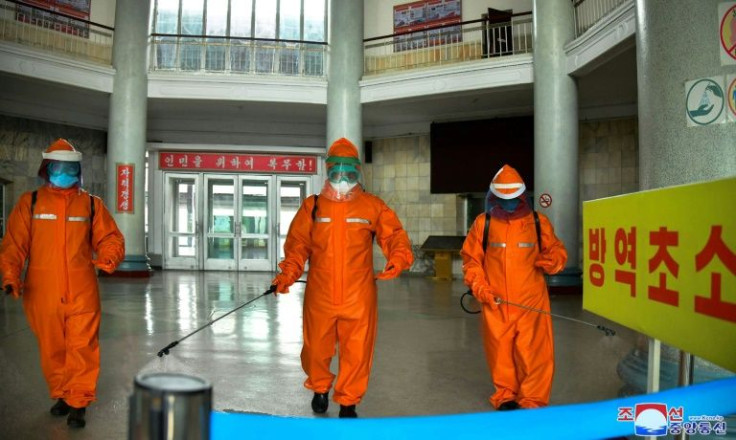North Korea May Currently Have 2 Million COVID-19 Cases; Number Likely Higher
KEY POINTS
- The DPRK reported over 262,000 new COVID-19 cases Tuesday
- The latest figure brings the total number of people with COVID-like symptoms to 1.98 million
- North Koreans are believed to be unvaccinated against COVID-19
North Korea, officially known as the Democratic People’s Republic of Korea (DPRK), could have two million COVID-19 cases just a week after the country acknowledged its first coronavirus infection.
The DPRK on Tuesday reported 262,270 new cases of people with suspected symptoms of COVID-19. The latest figure brings the total number of people with feverish symptoms in North Korea since late April to at least 1.98 million, according to the official Korean Central News Agency.
North Korean authorities Tuesday also reported a single COVID-19 death, bringing its virus death toll to 63. However, experts have said the number could likely be higher, noting the country’s lack of testing equipment used to confirm COVID-19 infections.
North Korea previously claimed it kept COVID-19 out of the country since 2020. However, it reported its first COVID-19 infection in the capital city of Pyongyang last Thursday.
“There has been the biggest emergency incident in the country, with a hole in our emergency quarantine front, that has been kept safely over the past two years and three months since February 2020,” the country’s state media said.
North Korea has tightly sealed its borders since the start of the pandemic, even declining invitations to send teams to compete at the Beijing Olympics and Tokyo Summer Games.
When new variants of COVID-19 emerged, the DPRK cut off nearly all trade with China. From September to October 2020, imports from Beijing to North Korea dropped by 99%, according to data published by China’s customs administration.
Experts have said that North Korea will likely suffer a COVID-19 catastrophe unless it takes swift action to respond to the rising number of cases, including providing its residents access to vaccines and drug treatment.
North Korean residents are believed to be unvaccinated after the government refused to accept roughly three million doses of China’s Sinovac vaccine doses. It is also believed that healthcare centers in the country do not have access to antiviral drugs used to treat COVID-19.
In addition to the lack of drugs, North Korea’s hospitals lack testing equipment and intensive care resources to treat people with severe cases of COVID-19. At least 26 million people battling malnourishment are also susceptible to developing serious COVID-19 symptoms.
“They are facing the rampant spread of Omicron without protection from vaccines, without much – if any – immunity in the population and without access to most of the drugs that have been used to treat Covid elsewhere,” Owen Miller, a lecturer in Korean studies at the School of Oriental and African Studies, London University, told The Guardian. “It looks really bad.”

© Copyright IBTimes 2025. All rights reserved.






















